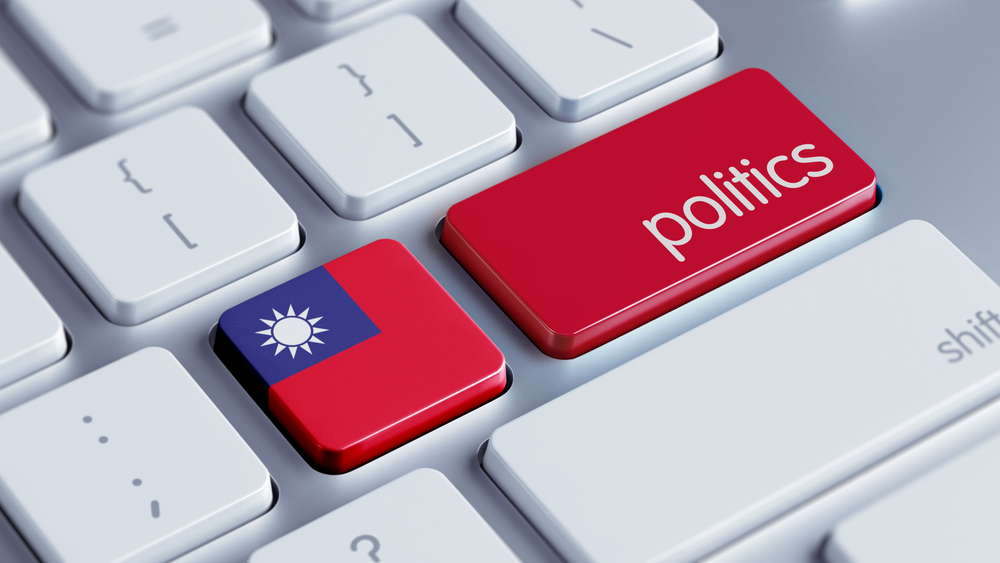Does Taiwan’s President Provoke China or Her Party?

Please note that we are not authorised to provide any investment advice. The content on this page is for information purposes only.
Taiwan’s new president Tsai Ing-wen faces a dilemma. If she continues her Kuomintang (KMT) predecessor Ma Ying-jeou’s rapprochement with Beijing, she risks enraging independence-minded members of her Democratic Progressive Party (DPP). The alternative is grimmer — provoking China after years of cordiality.
Taiwan’s new president Tsai Ing-wen faces a dilemma. If she continues her Kuomintang (KMT) predecessor Ma Ying-jeou’s rapprochement with Beijing, she risks enraging independence-minded members of her Democratic Progressive Party (DPP). The alternative is grimmer — provoking China after years of cordiality.
Nowhere is the situation more precarious than in foreign policy, ever a concomitant of cross-Strait relations. Tsai has been straitjacketed by Ma’s perceived success with Beijing, which was premised on a vaunted diplomatic ‘truce’. This unofficial agreement ended the ‘dollar diplomacy’ and tit-for-tat ally-poaching that had stained the administration of Ma’s predecessor, President Chen Shui-bian.
While she will likely eschew the excesses of the Chen era, Tsai will struggle to expand Taiwan’s space without concessions on sovereignty. If the detente is indeed over, Beijing will resume efforts to prise away Taipei’s allies, with the new president shouldering the blame.
Indeed, the People’s Republic of China (PRC) has reasserted its power to influence the terms of Taiwan’s engagement with multilateral institutions. In April, it insisted that its Ministry of Finance apply for entry to the Asian Infrastructure Investment Bank (AIIB) on Taiwan’s behalf, a condition unacceptable to Taipei. Earlier this month, Taiwan’s World Health Assembly invitation arrived, just a fortnight before the summit in Geneva. Taiwan finally gained World Health Assembly observer status in 2009, another finial on Ma’s hat. Yet this year’s invitation contained an unprecedented reference to the ‘one China’ principle.
More importantly, at least in terms of public perception, Tsai will almost certainly not be able to match Ma’s most tangible achievements: an almost threefold increase in the number of countries offering visa-free privileges to Taiwanese citizens, and free-trade agreements (FTAs) with New Zealand and Singapore.
As one Ministry of Foreign Affairs official says, ‘foreign relations is at 90 percent. Where do you go from there? The key will be finding that extra few percent. Tsai will have to be very creative.’
The missteps of the Chen Shui-bian era remain are instructive for Tsai, in that they illustrate how not to boost Taiwan’s international role. At odds with Beijing before he took office in 2000, Chen let Taipei’s foreign policy lapse into venality. While Beijing’s affronts gained Taipei sympathy, the seedier aspects of the latter’s foreign policy drew criticism. Having vowed to put away the chequebook, Chen was politically vulnerable at home when the scandals accumulated.
During the 1990s, major partners such as Saudi Arabia, South Korea and South Africa had broken ties with the ROC, leaving Taipei desperate. West African allies continued to flit back and forth between Taipei and Beijing, but the most egregious incident involved an alleged loan of US$2.35 billion to Papua New Guinea in 1999 to secure diplomatic ties. PNG Prime Minister Bill Skate was forced to resign ahead of a no confidence vote. Under pressure from Australia, the new PNG government rescinded recognition. Taipei’s recently upgraded embassy was forced to revert to the status of a representative office, leaving the administration red-faced.
The South Pacific proved treacherous for years to come. PNG returned to the headlines in 2008 over a US$30 million payment from Taiwan that had disappeared two years earlier. Depending on the version of events, the funds were pocketed by intermediaries or by PNG officials. Either way, the Taiwanese taxpayers’ money was never recouped.
Graver still were the 2006 post-election riots in the Solomon Islands. Violence in Honiara was directed at ethnic Chinese who were accused of vote rigging. The city’s Chinatown was demolished and a casino reputed to be a front for Taiwanese money laundering was torched. Australian media accused Taipei of undermining vulnerable democracies by transposing its diplomatic wrangle with Beijing onto the Pacific playing field. Taipei protested it was being scapegoated for Australia’s botched handling of security during the elections. Despite scant evidence of direct interference, the lack of oversight in Taipei’s aid programs certainly helped rumours to destabilise the situation.
The emergence of more scandals involving payments to Panama, Guatemala and El Salvador under Chen reinforced Ma Ying-jeou’s image of probity by comparison. Shortly before his inauguration in May 2008, Ma publicly called for a ‘diplomatic truce’ with Beijing, linking this explicitly to ‘dollar diplomacy’.
Therefore, while there is undoubtedly a political imperative to make a break with the Ma-era foreign policy, President Tsai should choose innovation over the crude measures of the previous DPP administration. Trends toward people-to-people diplomacy offer clues to how Tsai might cultivate constituencies in support of a greater Taiwanese role in international diplomacy. One avenue might be to shore up support with overseas Chinese communities, which became increasingly ambivalent in their attitudes toward Beijing during Ma’s tenure.
Whatever course is taken, it is clear that a new way forward is required. Given Taipei’s historical failure to meaningfully boost its ally count, the harm and humiliation that such attempts have brought and the likelihood that Beijing will revert to type, Tsai might be best advised to step back from Taiwan’s focus on state-level manoeuvres and the chequebook diplomacy that has often gone with it.
Taiwan’s friend buying days are over is republished with permission from East Asia Forum




